How Do Sharks Sleep? Exploring Shark Sleep Habits
Find out how sharks rest and the unique ways they sleep in the ocean.
Ever wondered how sharks rest while swimming through the big oceans? Many ocean lovers and scientists think about this. Sharks are often seen as always moving, never stopping. But do they ever take a break? Let's find out how these amazing predators catch some sleep under the waves.
Do Sharks Really Sleep?
Do sharks really sleep? Well, yes and no. Sharks don't sleep like humans do. They don't fall into a deep sleep. Instead, they have times when they rest and times when they're active. These rest periods help them save energy without becoming totally unconscious.
Unlike us, sharks don't have eyelids (except for a few kinds), so their eyes stay open even when they're resting. This means they can stay aware of what's happening around them, which is important for survival in the ocean.
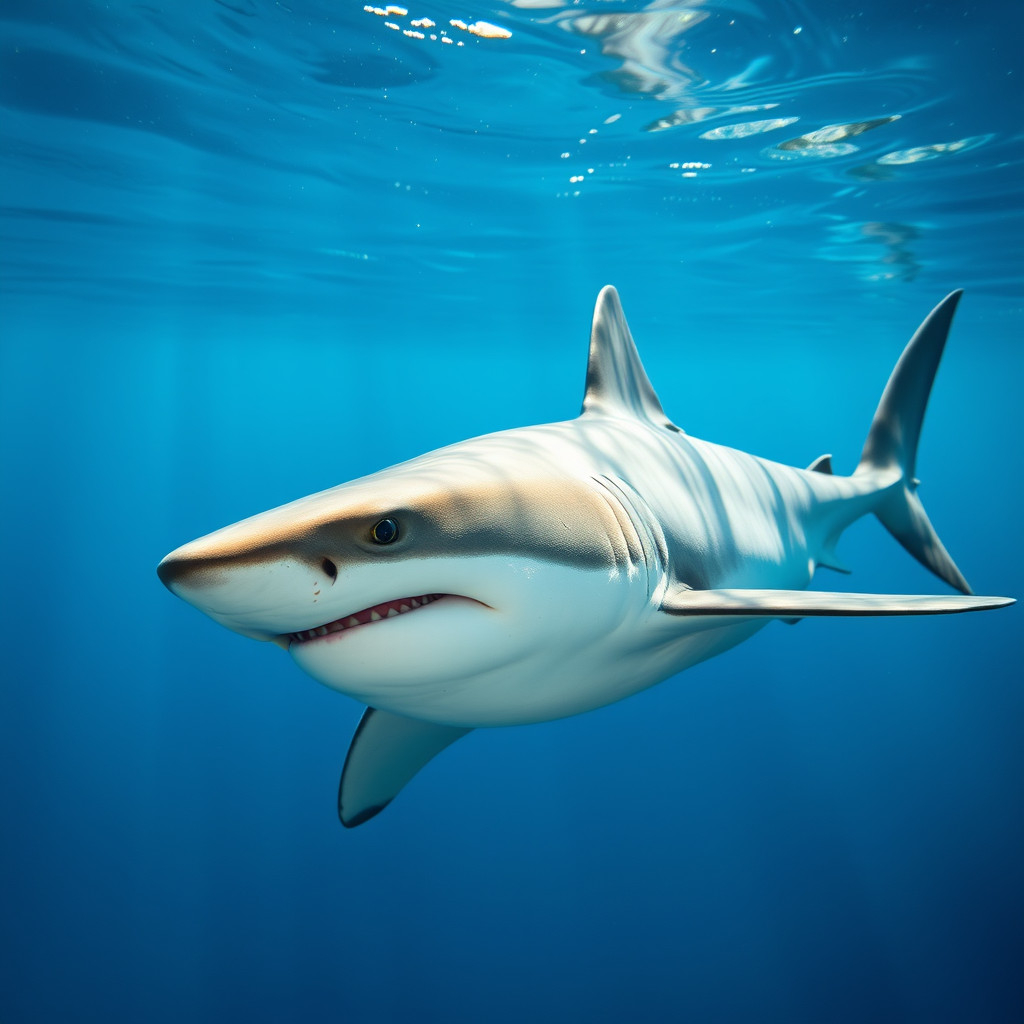
How Sharks Breathe
To understand how sharks rest, we need to know how they breathe.
Sharks need water to keep flowing over their gills to get oxygen. They have two main ways of doing this:
Ram Ventilation
Some sharks, like the great white and whale shark, use ram ventilation. This means they have to keep moving forward to push water over their gills. If they stop, they can't get oxygen, which could be deadly.
Buccal Pumping
Other sharks use buccal pumping. They actively draw water into their mouths and over their gills by moving their cheek muscles. Sharks like the nurse shark and some reef sharks use this method. It lets them rest on the ocean floor.
Resting While Swimming
So, how do sharks that need to keep moving rest? They've found interesting ways to take a break:
Gliding and Saving Energy
Sharks can save energy by gliding through the water. After swimming fast, they relax their muscles and let momentum carry them. This gliding reduces energy use and acts like a rest.
Half-Brain Sleep
Some scientists think sharks might sleep with half their brain at a time. This is called unihemispheric slow-wave sleep. It means one side of the brain rests while the other stays active. This lets them keep swimming and stay alert.
Swimming Deeper
Some sharks dive to deeper, cooler waters when they rest. The cooler temperatures can slow their metabolism. This means they need less energy to move, so they can rest while still swimming slowly.
Where Do Sharks Rest?
Some sharks have favorite places to rest:
Resting on the Seafloor
Sharks like the nurse shark often rest on the sandy ocean floor. They can lie still for a long time because they can breathe without swimming.
Mangroves and Estuaries
Young sharks, like baby lemon sharks, often rest in shallow mangroves and estuaries. These areas keep them safe from bigger predators and have calmer waters.
Hiding in Caves
Some reef sharks rest in underwater caves or cracks. These spots protect them from currents and other predators, making them good places to pause.
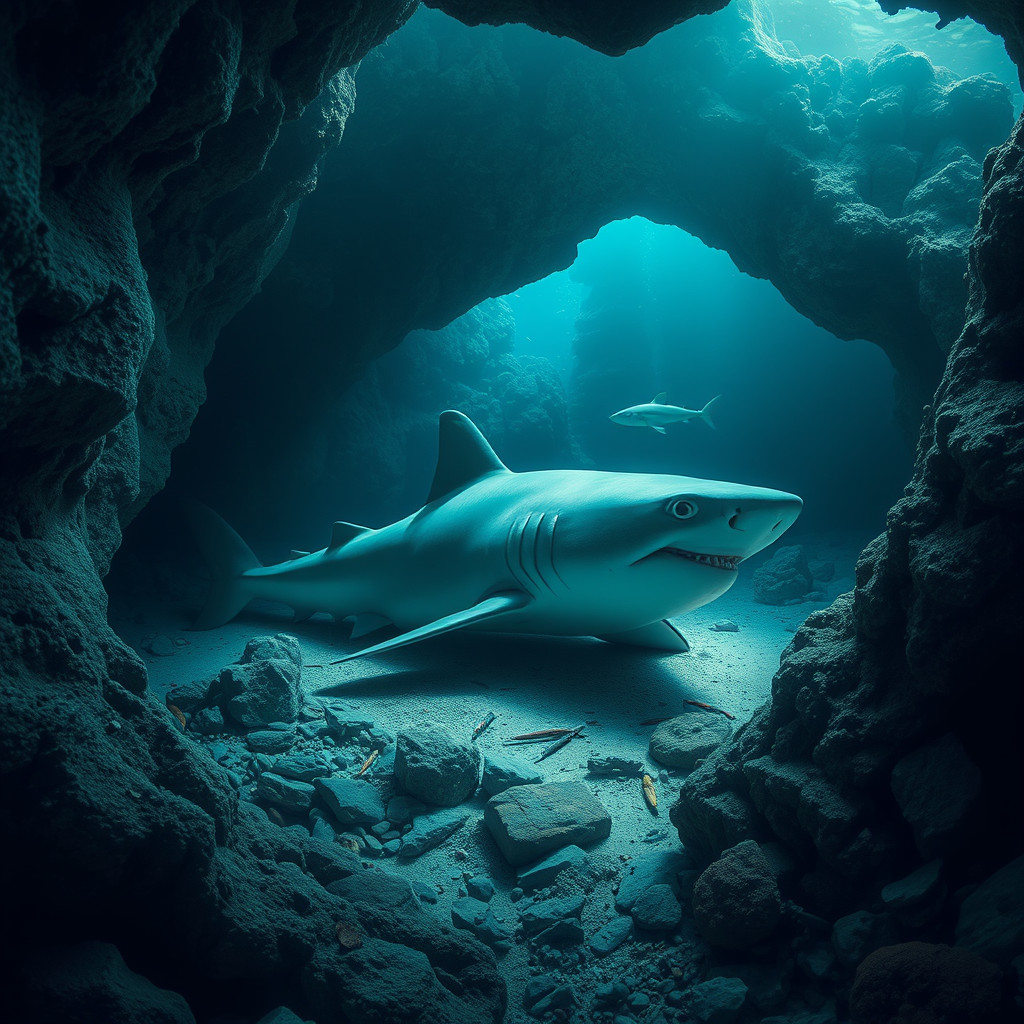
Different Sharks, Different Resting Habits
Different kinds of sharks rest in their own ways:
Great White Sharks
Great whites have to keep swimming to breathe. But they have times when they swim slowly and steadily, maybe resting parts of their brain while they move.
Whale Sharks
Whale sharks, the gentle giants, also need to keep moving. They swim slowly and might rest while they cruise through the water, eating plankton.
Hammerhead Sharks
Hammerheads mix swimming and resting. Some have been seen in groups during the day, which might help them rest while others keep watch.
Myths About Shark Sleep
There's a lot of wrong ideas out there:
Sharks Can't Stop Moving
While this is true for some sharks, not all need to swim all the time. Sharks that use buccal pumping can stop and rest without problems.
Sharks Sleep Like Humans
Sharks don't sleep like we do. They don't have eyelids (except for some), so their eyes stay open, and they stay partly alert even when resting.
Sleeping Sharks Are in Danger
Even when resting, sharks stay aware of their surroundings. Their senses let them detect changes in water pressure, electrical fields, and movement, helping them stay safe.
Spiracles Help Sharks Rest
Spiracles are small openings behind the eyes of some sharks. They help in a few ways:
Helping Them Breathe: Spiracles let sharks draw water over their gills without moving.
Resting More Easily: Sharks with spiracles, like the horn shark, can rest on the ocean floor and still breathe well.
Sharks Stay Alert Even When Resting
Sharks have amazing senses that keep them aware, even when resting:
Lateral Line System
This system helps them detect vibrations and movements in the water. It lets sharks sense nearby animals or threats.
Ampullae of Lorenzini
These special organs detect electrical fields from other creatures. This helps sharks hunt and stay aware of what's around them.
Why Shark Resting Matters
Understanding how sharks rest is important:
Knowing Their Behavior: If we know when and where sharks rest, we can create protected areas.
Human Interaction: Divers and swimmers can avoid disturbing resting sharks by knowing their habits.
Better Fishing Practices: Knowing how sharks rest can help make fishing rules that prevent accidental catches.
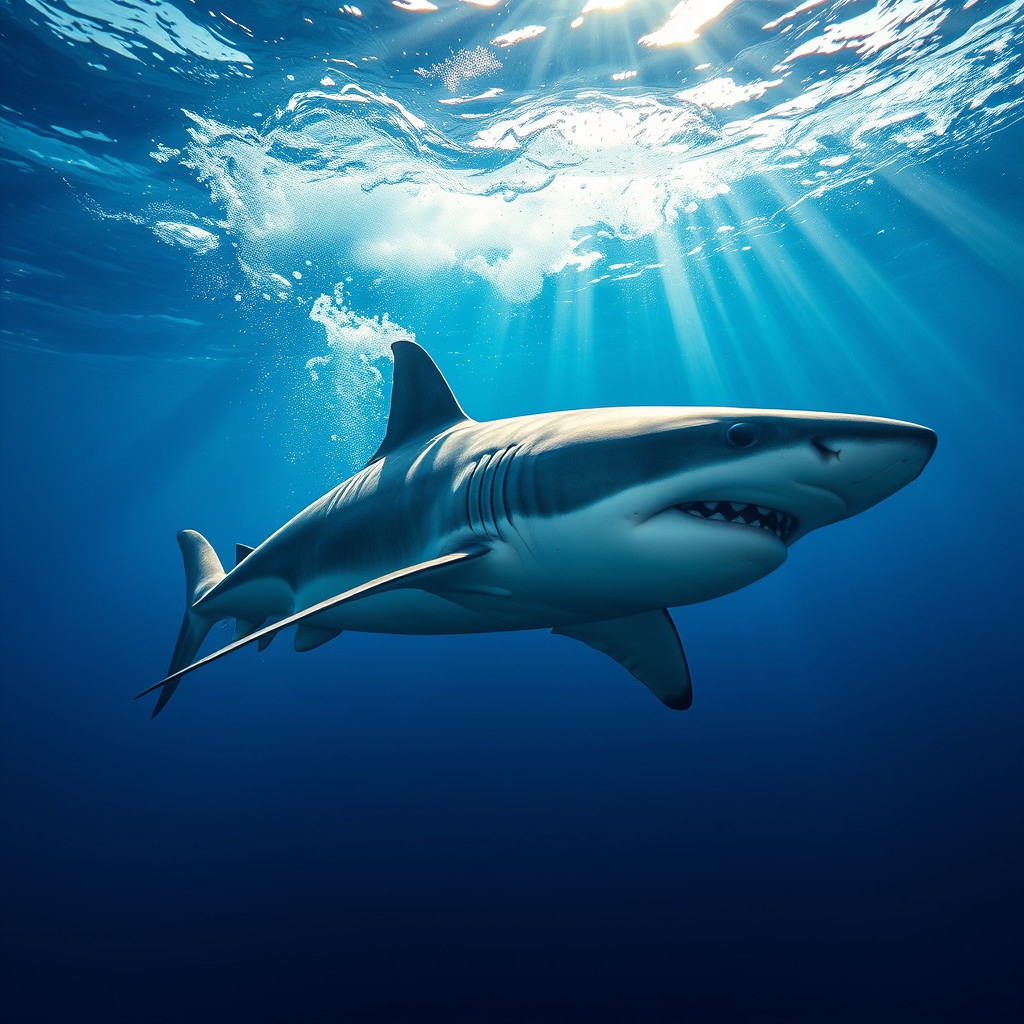
How Scientists Study Shark Resting
Researchers use different methods:
Watching Them in Nature
Scientists observe sharks in their natural habitats to see how they rest.
Using Technology
They use trackers and cameras to monitor movement and find resting times. Devices like accelerometers show changes in activity.
Studying Them in Labs
While hard to do, some sharks are studied in controlled environments to watch their sleep-like behaviors and brain activity.
Sharks Compared to Other Marine Animals
Sharks aren't the only animals with unique sleep habits:
Dolphins
Dolphins also sleep with half their brain at a time, keeping one side active while the other rests.
Fish
Many fish slow down and lower their metabolism when resting but stay ready to react to danger.
Seals
Some seals sleep underwater and come up for air without waking up.
Why Sharks Rest the Way They Do
The way sharks rest gives them many benefits:
Always Alert: Staying partly awake helps them avoid predators and hunt well.
Breathing Efficiently: Their breathing methods let them rest without losing oxygen.
Saving Energy: Switching between activity and rest helps them manage energy when food might be scarce.
Why We Should Care
Sharks are important for the ocean:
Keeping Balance: As top predators, they control fish populations.
Healthy Oceans: Knowing their habits helps us keep oceans healthy.
Biodiversity: Protecting sharks helps keep marine life diverse, which is vital for a balanced ecosystem.
How You Can Help Protect Sharks
Everyone can help:
Support Conservation Groups: Back organizations that work to protect sharks and their homes.
Be a Responsible Tourist: Choose eco-friendly diving and snorkeling operators who respect marine life.
Spread the Word: Share what you know about sharks to dispel myths and promote understanding.
Cool Facts About Shark Sleep
Here are some interesting tidbits:
Sleeping with Mouths Open: Some sharks sleep with their mouths open to help them breathe.
Resting in Groups: Certain sharks, like the whitetip reef shark, rest in groups during the day.
Resting at Different Depths: Sharks might rest at different depths based on water temperature and oxygen levels.
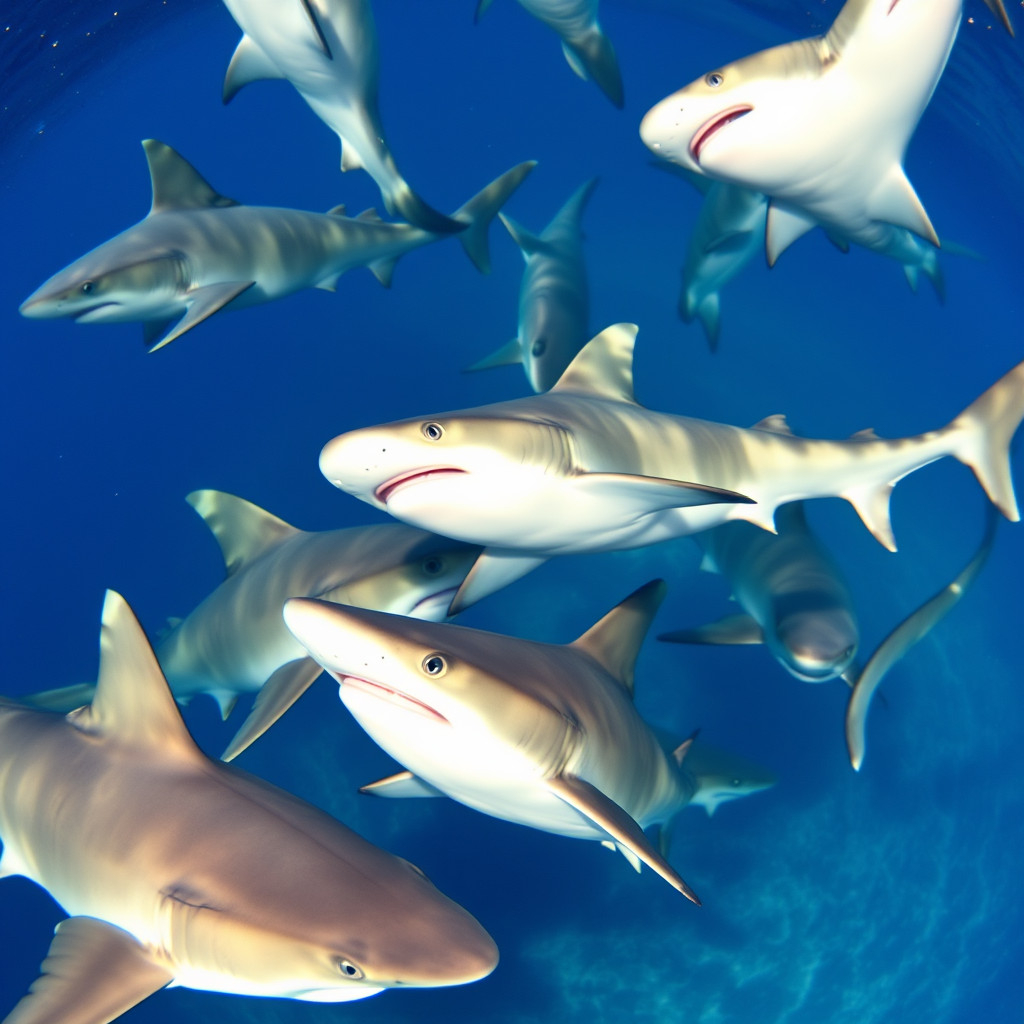
Conclusion
Sharks have found amazing ways to rest while living under the sea.
Whether they glide through the water, rest on the ocean floor, or use special breathing methods, these incredible creatures continue to fascinate us. Next time you think about sharks, remember there's much more happening beneath the surface! If you're curious to learn more about marine life, keep exploring and feed your sense of wonder.
FAQ
Can all sharks stop swimming to rest?
Not all sharks can stop swimming. Sharks that need ram ventilation must keep moving to breathe, but those that use buccal pumping can rest without moving.
Do sharks sleep with their eyes open?
Yes, sharks sleep with their eyes open because they don't have eyelids (except for a few kinds). Even when resting, their eyes stay open and alert.
How do sharks breathe when they're resting?
Sharks that rest use methods like buccal pumping or spiracles to pull water over their gills without swimming. This lets them breathe while staying still.
Do sharks ever become completely unconscious?
No, sharks don't become fully unconscious like humans do when we sleep. They enter rest periods but stay partly aware of their surroundings.
Can divers approach resting sharks safely?
While some resting sharks may not mind divers, it's important to keep a respectful distance to avoid bothering them and to stay safe.
Do all sharks have spiracles?
No, not all sharks have spiracles. They're more common in sharks that can rest without swimming, helping them breathe while still.
Do sharks dream?
There's no evidence that sharks dream. Their sleep patterns are different from humans, and they don't have deep REM sleep where dreaming happens.
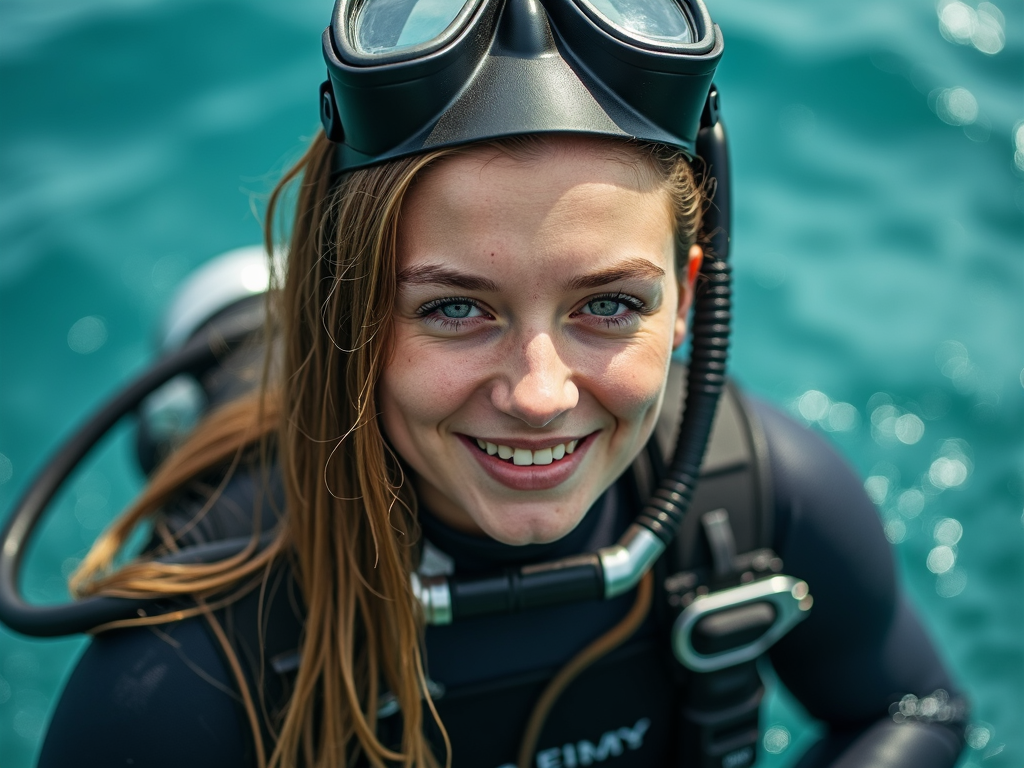
I'm a scuba enthusiast, and marine life lover. I enjoy writing about my diving adventures and sharing my knowledge with others.

I'm a passionate scuba diver and love to share my experiences with you. I enjoy writing about my experiences and sharing my knowledge with others.